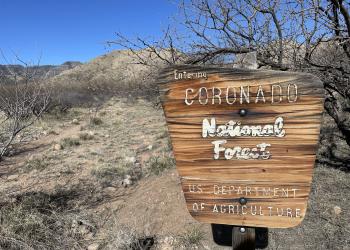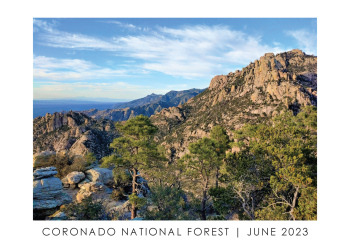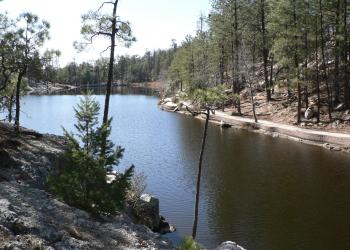Welcome to Coronado National Forest
Experience all four seasons during a single day's journey. Enjoy spectacular views from the mountains, wander through the desert among the giant saguaro cactus and colorful wildflowers in the morning, linger over lunch beside a mountain stream or lake, and play in the snow all before the day's end.
Places to Stay

From the desert to the mountains, discover your next destination in the Coronado National Forest.
Visitor Maps and Guides

Maps for every need, the way you want them:
Interactive, print and downloadable, including Motor Vehicle Use maps.
Passes for a Year or Day

You may need to pay a fee depending on which sites you visit. Save money with a recreation pass.
Animals and Plants

The different forest and habitat types provide for numerous species of wildlife, extractable resources, and special places for people to enjoy the outdoors.
Live Footage from Mt. Bigelow near Tucson, AZ

Imágenes en vivo desde Mt. Bigelow, cerca de Tucson, AZ
Website Transition

We recently transitioned our website to a modern platform to better serve you. With hundreds of pages to update, some content may take longer to appear, and some content has been archived. Please email us if there is something you can't find!
Applications for Temp Positions Now Open

Applications will be due through USAJobs.gov by August 22. Open positions are now listed.







